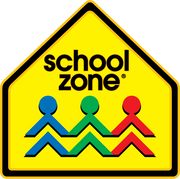Reading words teaches words
JRE Library published, "Benefits of Reading: Why You Should Read More," which says, "The more you read, the more words you'll be exposed to. Consistent exposure to new words, learning their meanings and seeing the context in which they're used will increase your mental dictionary."
While that's true at every stage of life, cultivating a love of reading—and encountering the new words that come with it—early on is incredibly important.
As with so many things, parents are role models. Yet time spent reading "for pleasure" continues to drop. In September, the Link to research about kids reading by Pew Research Center reported on findings of a survey they conducted mid-winter. The results showed "Roughly a quarter of American adults (23%) say they haven't read a book in whole or in part in the past year, whether in print, electronic or audio form."
Perhaps not surprisingly, childhood reading habits are following suit, though results vary. In February of this year, The Bookseller cited the Childwise 2021 Monitor Report. The Bookseller says, "Childwise interviewed almost 2,000 children aged five to 16 for its annual report" and found that "a quarter said they never read for pleasure," though the results vary considerably by age and gender.
A rich vocabulary improves writing and much more
The benefits of reading are many, but vocabulary development is a huge one. A person's vocabulary—again, with reading being one of the biggest foundations—is reflected by many measures. In 2018 a post titled "The Importance of Vocabulary for Life," on the Success Prep Partners Education and Career Counseling blog, addressing a change to the SAT, noted that "The more important benefit to building a more sophisticated personal lexicon is how it impacts all aspects of one's life—from elementary school through the adult years."
As one example, it goes on to suggest that "Writing skills are undoubtedly weaker when students don't have a strong vocabulary at their disposal," and this remains true into the college years and beyond.
A 2020 Today post by Andrew Arenge, titled "How to Help Your Child Develop a Strong Vocabulary," says, "To succeed in school and beyond, children need to build a robust vocabulary."
The article included tips from University of Michigan Education Professor Nell Duke: "Repeated exposure is one of the best ways to master new vocabulary words" and "Typically, a child needs to hear a new word 4 to 12 times before it is added to his vocabulary." To help provide that reinforcement, the article recommends that "When you introduce your child to a new word, try to keep a mental note of it and work to use it again in your conversations with your child."
To really learn a vocabulary word, it says your child "needs to be able to read it, say it, and write it."
Litemind, a site about "exploring ways to use our minds efficiently," posted "Top 3 Reasons to Improve Your Vocabulary." It says, "The researcher Johnson O'Connor, known for his studies about the impact of vocabulary on people's lives, has drawn many amazing conclusions," based on his 20+ years of research.
The article goes on to report an astonishing discovery. It says, "He always found the same results, no matter which area he looked at, and no matter how he analyzed the data: a person's vocabulary level is the best single predictor of occupational success."
The journey begins with early wordplay and reading
The littlest learners can discover the fun of words, how they roll off the tongue one sound at a time, and how they relate to pictures/objects, with Three-Letter Words Puzzle Cards. They include 36 fun puzzles: three cards make one picture; one picture makes one 3-letter word. The cards help get children ready for reading.

At the next level, the Preschool, Kindergarten, and First Grade structured learning paths in the Anywhere Teacher online learning system, feature adorable Start to Read! books followed by comprehension quizzes that reinforce learning. Busy Beavers, full of fun facts about this industrious mammal, is just one example.

Another option is the 4-workbook Spelling & Vocabulary Puzzle Workbook Collection Grades 1-2, which helps kids sharpen spelling skills, expand their vocabulary in a wide range of areas, and become stronger readers. For older kids, the 32-page Word Search Challenges workbook (ages 8 and up), is filled with activities that make working with words more fun.

Learn about bugs and bug body parts, the bioluminescence of fireflies, and some good, gross-out trivia about the Goliath beetle that can grow to four inches long. The whole family can join in learning new info as they spot the vocabulary words.
Help pave kids' paths to academic and vocational success one word at a time!











